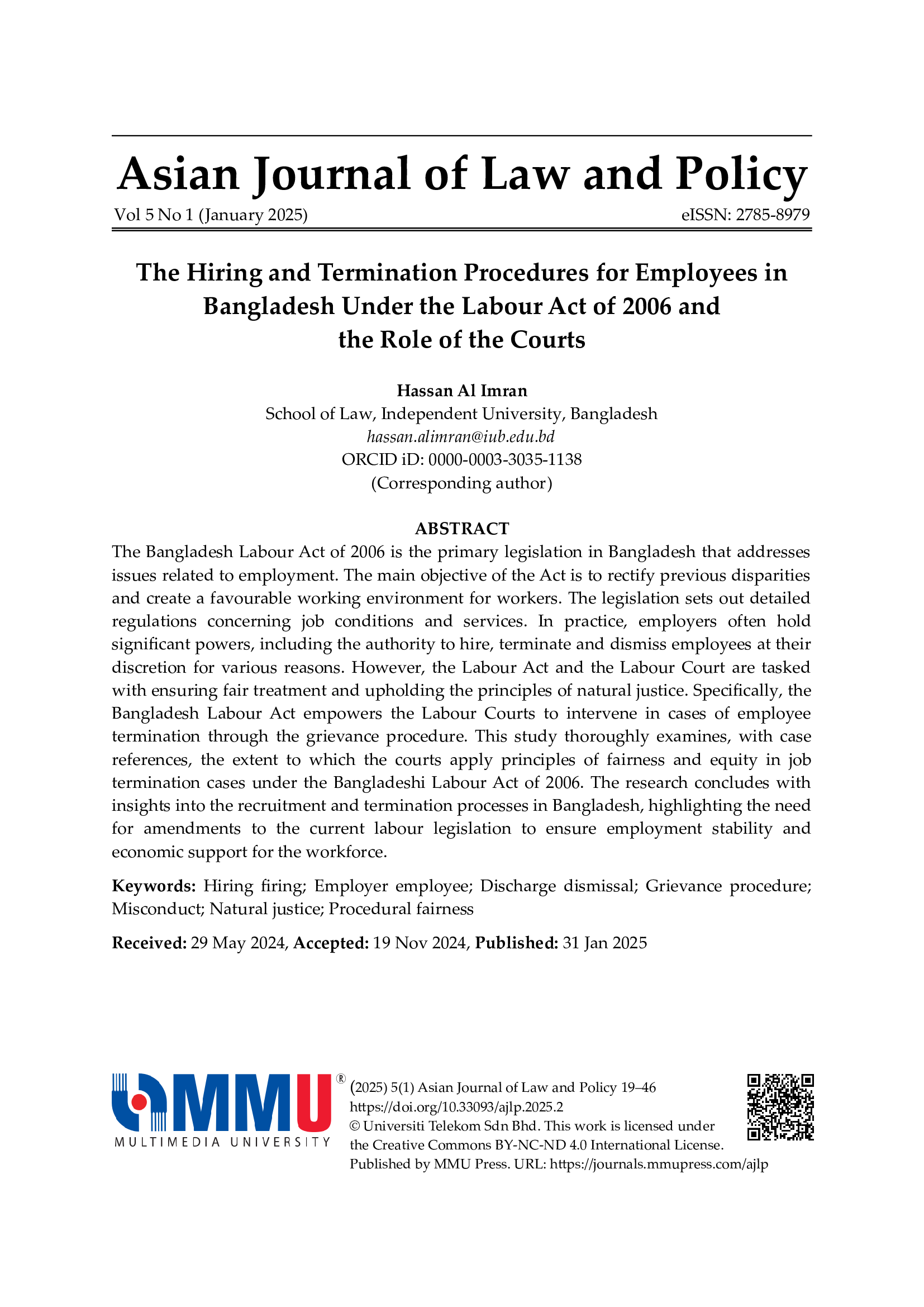The Hiring and Termination Procedures for Employees in Bangladesh Under the Labour Act of 2006 and the Role of the Courts
Main Article Content
Abstract
The Bangladesh Labour Act of 2006 is the primary legislation in Bangladesh that addresses issues related to employment. The main objective of the Act is to rectify previous disparities and create a favourable working environment for workers. The legislation sets out detailed regulations concerning job conditions and services. In practice, employers often hold significant powers, including the authority to hire, terminate and dismiss employees at their discretion for various reasons. However, the Labour Act and the Labour Court are tasked with ensuring fair treatment and upholding the principles of natural justice. Specifically, the Bangladesh Labour Act empowers the Labour Courts to intervene in cases of employee termination through the grievance procedure. This study thoroughly examines, with case references, the extent to which the courts apply principles of fairness and equity in job termination cases under the Bangladeshi Labour Act of 2006. The research concludes with insights into the recruitment and termination processes in Bangladesh, highlighting the need for amendments to the current labour legislation to ensure employment stability and economic support for the workforce.
Article Details

This work is licensed under a Creative Commons Attribution-NonCommercial-NoDerivatives 4.0 International License.
References
Hassan Faruk Al Imran, ‘Definition of Workers and Application of the Bangladesh Labour Act 2006: An Appraisal’ (2020) 9(1) The E-Journal of International And Comparative Labour Studies 34-52.

